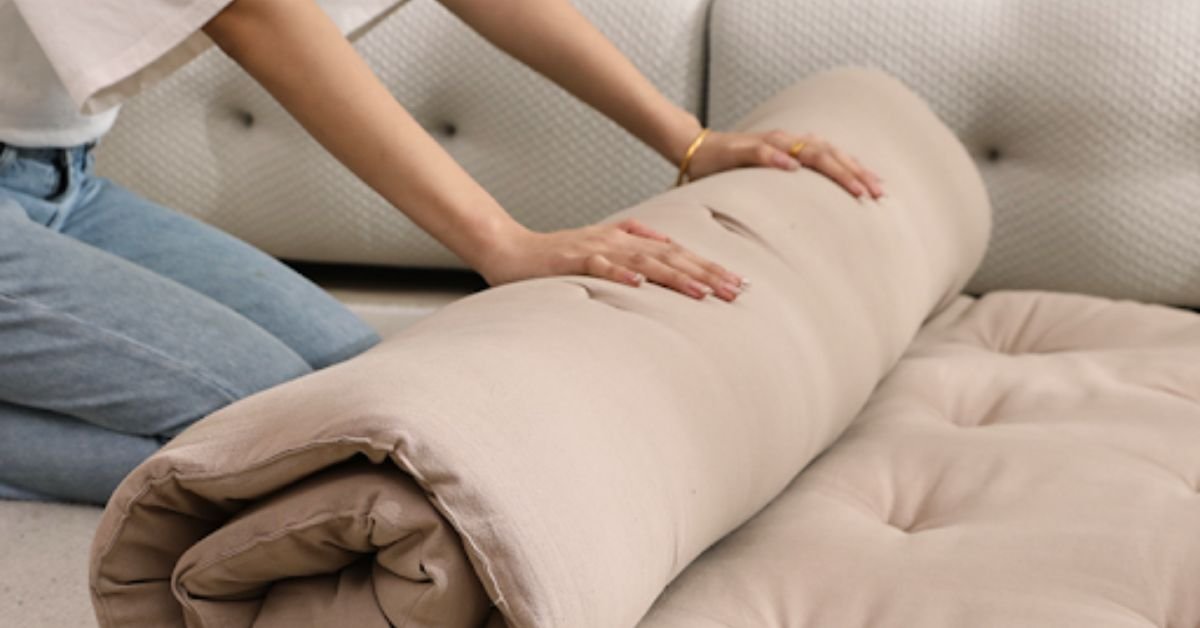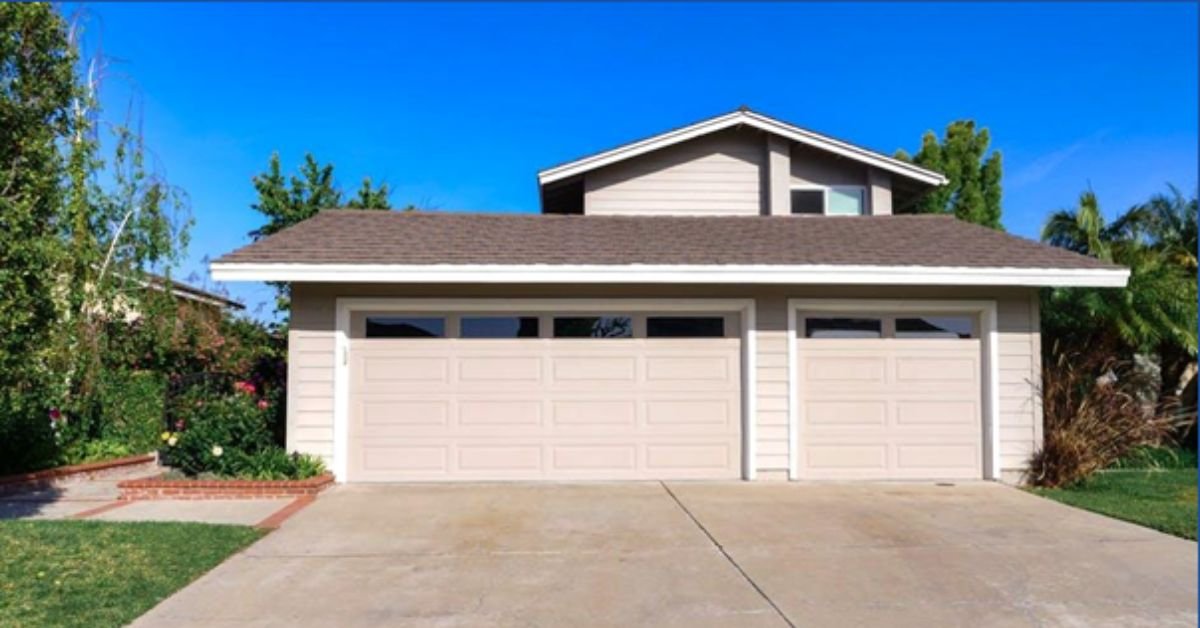Home Decor
Exploring the Various Flat Roof Types for Residential Properties

Are you thinking about getting a flat roof for your home but unsure which type to choose?
Exploring the various flat roof types for houses can help you find the perfect one. Flat roofs are not only modern and stylish but also offer practical benefits. They are easy to install, take care of, and can even create extra living space.
Whether you want a strong material, energy savings, or just a unique look, learning about different flat roof types will help you make the best choice. Dive into the world of flat roofs and discover the best options for your home.
Built-Up Roof (BUR)
A Built-Up Roof (BUR) is a great choice for residential properties because it is strong and lasts long. It is made from layers of tar and gravel, which protect against bad weather and the sun.
The layers make it tough and less likely to get damaged, so your roof can last many years. BUR roofs are also easy to fix and take care of, making them a smart pick for homeowners.
If you want a BUR roof, it’s best to talk to experts. For roofing services, you can visit https://foreverext.com/eau-claire/ for help and advice.
Modified Bitumen
Modified Bitumen is a great choice for flat roofs on homes because it provides excellent waterproofing. This type of roof comes in rolls and is easy to put on. Modified Bitumen has a special surface that protects against the sun and bad weather, making it very strong.
It also helps keep your home cool by reflecting sunlight, which can save on energy bills. With its tough, waterproof layers, it is perfect for homes needing strong roof protection. If you choose this type of roof, you’ll find it easy to take care of and long-lasting.
EPDM (Ethylene Propylene Diene Monomer)
EPDM (Ethylene Propylene Diene Monomer) is a top pick for flat roofs on homes. This roof type is made from synthetic rubber, making it lightweight and flexible. EPDM is great for residential properties because it resists damage from the sun and bad weather.
It can handle temperature changes well, which means fewer repairs over time. EPDM also provides excellent waterproofing, keeping your home dry.
It’s easy to install and maintain, making it a smart choice for homeowners looking for a reliable roofing solution. With EPDM, you get a durable roof that stands the test of time.
TPO (Thermoplastic Olefin)
TPO (Thermoplastic Olefin) is a great option for flat roofs on homes. This type of roof is known for its strong, waterproof surface. It reflects sunlight, which helps keep your home cooler and reduces energy costs.
TPO is also resistant to mold and dirt, making it easy to clean and maintain. Homeowners like TPO because it is durable and long-lasting. If you want a reliable and energy-efficient roof, TPO is an excellent choice.
Choosing the Best Flat Roof Types for Your Home
Selecting the right flat roof types for your home is crucial for ensuring long-lasting protection and energy efficiency. Each option, whether Modified Bitumen, EPDM, or TPO, offers unique benefits tailored to different needs.
Modified Bitumen provides excellent waterproofing and durability. EPDM is known for its flexibility and resistance to weather changes. TPO stands out for its energy efficiency and low maintenance.
By understanding these flat roof types, you can make an informed decision that best suits your home’s requirements. Investing in the right roof type will provide peace of mind and safeguard your property for years to come.
Did you find this article helpful? You can check out our website for more awesome content like this.
Home Decor
The Art of Maintaining Your Tatami Mattress: Keeping It Clean and Looking New

Ah, the tatami mattress is an image of Japanese culture and a touch of class in any domestic setting. This conventional tangle, made from woven straw and secured with delicate, strong texture, is not a resting surface but a piece of craftsmanship that brings quietness and straightforwardness to your living space. In any case, like any prized possession, a tatami mat requires appropriate care to keep up its perfect condition. Here’s your extreme direction to keeping your tatami mattress clean and looking modern, imbued with a touch of humor to make the assignment less of a chore and more of a joy.
Why Care for Your Tatami Mattress?
Before plunging into the how-tos, let’s have a conversation about the why. A well-maintained tatami mattress:
- Lasts longer: Legitimate care amplifies the life expectancy of your tatami mattress, sparing you cash in the long run.
- Looks way better: Keeping it clean and new guarantees it remains an alluring inclusion in your home.
- Stays more beneficial: Customary support anticipates shape, clean vermin, and repulsive odors, guaranteeing a more advantageous resting environment.
Daily Care: The Basic Habits
Air It Out
Tatami mats cherish new discussions as much as we do. Each morning, overlap back your bedding to permit the tatami to breathe. If conceivable, prop it up close to a window to let it splash in a few common daylight.
Rotate Regularly
To guarantee indeed wear and tear, turn your tatami mat each couple of weeks. This makes a difference to keep up its shape and bolster. Also, it gives you an pardon to modify your room—a win-win for your inward inside decorator.
Weekly Care: A Bit More Elbow Grease
Vacuuming
Yes, your tatami mat increases in value during a great vacuuming session. Utilize a vacuum with a brush connection to tenderly clean the surface. This expels clean and flotsam and jetsam that can amass over time. Keep in mind to vacuum along the grain to maintain a strategic distance from harming the sensitive weave. Consider it a spa day for your tatami—complete with a delicate massage.
Wipe Down
Dampen a cloth with a blend of water and mellow cleanser, at that point grant your tatami a tender wipe down. This makes a difference in evacuating any adamant earth and revives the texture. Dodge splashing the tangle, as overabundance dampness can lead to form. It’s like giving your tatami a reviving facial—clean, clear, and beneath control.
Seasonal Care: The Profound Clean
Sunbathing Session
Every few months, treat your tatami mat to a sunbathing session. Take its exterior on a dry, sunny day, and let it loll in the daylight for a few hours. This not as it were refreshes it up but moreover makes a difference dispose of any waiting dampness. Fair make beyond any doubt to flip it midway through so both sides get an indeed tan. Your tatami will thank you with a brilliant glow.
Baking Pop Treatment
For a more profound clean, sprinkle heating pop over your tatami mat, let it sit for an hour, at that point vacuum it up. Preparing pop makes a difference, neutralizes odors and keeps your tatami noticeable. It’s like a deodorizing powder for your adored mat, fresh and fabulous.
Final Considerations: Cherish Your Tatami
Caring for your tatami mat might appear like a part of work, but with a few basic propensities and a few regular TLC, you can keep it looking and feeling modern for a long time to come. Grasp the craftsmanship of support, and your tatami will compensate you with a quiet and comfortable resting environment.
Home Decor
The 8 Hidden Health Benefits of Air Duct Cleaning

Breathe in. Now, take a deep breath out. Did you know that the quality of the air you’re breathing has a direct impact on your health?
We often focus on eating well and exercising to maintain a healthy lifestyle, but one crucial aspect that often gets overlooked is the cleanliness of our air ducts. You may have never considered it before, but air duct cleaning offers much more than just a dust-free home.
So pull up a chair and get ready! Discover the valuable and often overlooked benefits of air duct cleaning in top-notch conditions.
1. Reduce the Risk of Allergies
One of the hidden benefits of air duct cleaning is its ability to reduce the risk of allergies. Air ducts can become filled with dust, allergens, and other airborne particles that can trigger allergies. This can also cause discomfort for those who suffer from them.
Regularly cleaning the air ducts can remove these irritants and improve indoor air quality. In turn, this results in a healthier and more comfortable living environment.
This is especially beneficial for those with allergies or respiratory issues, as it can greatly reduce their symptoms and reduce the need for medication. Thus, investing in air duct maintenance and cleaning can not only improve the cleanliness of your home but also have a positive impact on your health and well-being.
2. Eliminate Trapped Moisture
Moisture can build up in air ducts due to condensation or leaks, creating a breeding ground for mold, mildew, and bacteria. These can circulate throughout the home, causing respiratory issues and allergies. By removing the trapped moisture, air duct cleaning helps improve indoor air quality and prevents potential health hazards.
It also helps improve the efficiency of the HVAC system, as moisture can cause it to work harder and use more energy. With regular air duct cleaning, homeowners can enjoy a healthier and more comfortable living environment.
3. Improves Airflow
Over time, air ducts can become clogged with dust, debris, and other allergens, making it difficult for air to circulate properly. This can lead to a variety of health issues, such as increased allergies, respiratory problems, and even sinus infections. By having your air ducts professionally cleaned, you can remove these contaminants and improve the airflow in your home.
This not only creates a more comfortable living environment but also helps promote better air quality, which is essential for maintaining good health. So don’t wait any longer, look for professional duct cleaning now and improve your home’s airflow and your health.
4. Lower Utility Bills
Air duct cleaning is often seen as a necessary maintenance task for the cleanliness and efficiency of a home’s heating and cooling system. While it is well known that regular air duct cleaning can improve air quality and reduce the risk of allergens, there is one hidden health benefit that often goes unnoticed – lower utility bills.
Over time, air ducts can accumulate dust which can obstruct proper airflow and cause the heating and cooling system to work harder. By regularly cleaning air ducts, homeowners can improve the efficiency of their HVAC system. In turn, this can result in lower utility bills and ultimately, saving money.
5. Prolong the Lifespan
Air duct cleaning may seem like a purely practical maintenance task, but it has a hidden health benefit that goes beyond just improving indoor air quality. By regularly removing accumulated contaminants from your air ducts, you are effectively prolonging the lifespan of your HVAC system.
These pollutants can clog filters and put strain on the system, causing it to work harder and potentially leading to breakdowns or malfunctions. By ensuring that your air ducts are clean, you are reducing the strain on your HVAC system and helping it to operate more efficiently, ultimately prolonging its lifespan and saving you money in the long run.
6. Improve the Cleanliness and Hygiene of Your Home
One hidden health benefit of air duct cleaning is the improvement of cleanliness and hygiene in your home. Over time, dust, bacteria, and mold can accumulate in the air ducts of your HVAC system and spread throughout your home. This can lead to poor air quality and respiratory issues for you and your family.
By regularly cleaning your air ducts, you can remove these harmful substances and improve the overall cleanliness of your home. This can also help prevent the spread of germs and reduce the risk of allergies and illnesses. Ultimately, air duct cleaning can contribute to a healthier, cleaner, and more hygienic environment for you and your loved ones.
7. Eliminate Unpleasant Odors
One often overlooked but significant health benefit of air duct cleaning is its ability to eliminate unpleasant odors. Dust, debris, and other particles can accumulate in air ducts, causing a stale, musty odor to permeate throughout the home or office.
This not only creates an unpleasant living or working environment, but it can also be harmful to one’s health, especially for those with respiratory issues. By cleaning the air ducts, these odors are removed, creating a fresher and healthier indoor air quality. This can alleviate allergies, reduce the risk of respiratory infections, and increase overall comfort and well-being.
8. Better Temperature Regulation
Air duct cleaning may seem like a mundane chore, but it has numerous health benefits, one of which is better temperature regulation. Debris can build up in the air ducts, blocking the proper flow of air and causing uneven temperatures in different rooms. By regularly cleaning the air ducts, these obstructions are removed, allowing for a more efficient flow of air throughout the home.
This leads to better temperature regulation, as the air can circulate more evenly and effectively, keeping the home at a comfortable and consistent temperature. This not only improves comfort but can also save money on energy bills. A simple task like air duct cleaning can have a major impact on the health and well-being of a household.
Discover the Hidden Health Benefits of Air Duct Cleaning
Air duct cleaning is not just about maintaining a clean and healthy home, it also has numerous hidden health benefits. From improving indoor air quality to reducing allergies and respiratory issues, it is clear that regular air duct cleaning is a crucial aspect of wellness.
Take care of your ducts and take care of your health. Schedule your air duct cleaning services today and experience the benefits of air duct cleaning for yourself!
Looking for more tips and advice? You’re in the right place! Make sure to bookmark our page and come back to check out more interesting articles.
Home Decor
4 Advantages of Choosing Roll Up Garage Doors for Your Home

Have you recently considered upgrading your garage door? If so, you might be overwhelmed by the number of options available. However, one choice stands out for its numerous benefits-roll up garage doors.
Read on to learn the benefits of using roll up garage doors.
1. Space Saving Design
Roll up garage doors are designed to save space. Unlike traditional garage doors that swing outwards or slide upwards, roll up doors coil neatly into a small box above the door opening.
Additionally, this space saving design is perfect for smaller garages or those with limited ceiling height. Modern garage door designs can also be customized to fit your specific garage space and needs. This means you can make the most of your available space without sacrificing functionality.
2. Easy Operation
Roll up doors are incredibly easy to operate. Most models come with an automatic opener that allows you to open and close the door with just the click of a button. This is especially convenient during bad weather or when you have your hands full with groceries or other items.
Moreover, these doors are designed to open and close smoothly, without any jerky movements. Secure garage doors also come with safety features such as sensors that detect objects in the door’s path, ensuring safe operation.
Roll up doors are also quieter than traditional garage doors, making them a great choice for homes where the garage is attached to living spaces. It eliminates the loud noises that can disrupt everyday activities.
3. Durability
Roll up garage doors are built to last. Made from high-quality materials such as steel and aluminum, these doors can withstand harsh weather conditions and regular use without warping or bending.
Professionals like those from Overhead Tampa can help you choose the right material and design for your specific needs and budget. They can also provide regular maintenance services to ensure your door stays in top condition for years to come.
Roll up doors also have a strong locking mechanism, making them more secure than traditional garage doors. This added security can give you peace of mind knowing your belongings are safe.
4. Energy Efficiency
Roll up doors are excellent insulators, helping to keep your garage at a comfortable temperature regardless of the weather outside. This means you won’t have to spend extra on heating or cooling your garage.
Some models also come with insulation options, providing even more energy efficiency and noise reduction. This can help reduce carbon footprint and save you money on utility bills.
The energy efficiency of roll up doors also makes them a great choice for eco-friendly homes, as they help to reduce energy consumption.
Installing Roll up Garage Doors
Roll up garage doors offer numerous advantages over traditional garage doors. These doors provide convenience, durability, and style for your garage. Consult with professionals to find the best roll up garage door for your home today.
Get ready to upgrade your home’s aesthetics, functionality, and security with a roll up garage door. Explore different styles and options to find the perfect fit for your garage space.

 Business3 months ago
Business3 months agoTex9.Net Crypto: Fast, Secure International Money Transfers with Competitive Rates

 Entertainment2 months ago
Entertainment2 months agoSandra Orlow: Exploring the Life and Legacy of a Cultural Icon

 General1 week ago
General1 week agoBaby Alien Fan Bus: Watch Parts 2 & 3 on Twitter, Reddit!

 General1 week ago
General1 week agoDiana Nyad & Bart Springtime: A Swim to Success

 Business3 months ago
Business3 months agoSnapchat Planets: Exploring Your Streak Universe

 General1 month ago
General1 month agoDeeper Dive into myfavouriteplaces. org:// blog

 Business3 months ago
Business3 months agoFintechZoom Apple Stock: Real-Time Insights and Expert Analysis

 Entertainment3 months ago
Entertainment3 months agoUnlock Your Fantasy: Dive into Coomer Party Free OnlyFans Leaks!
















